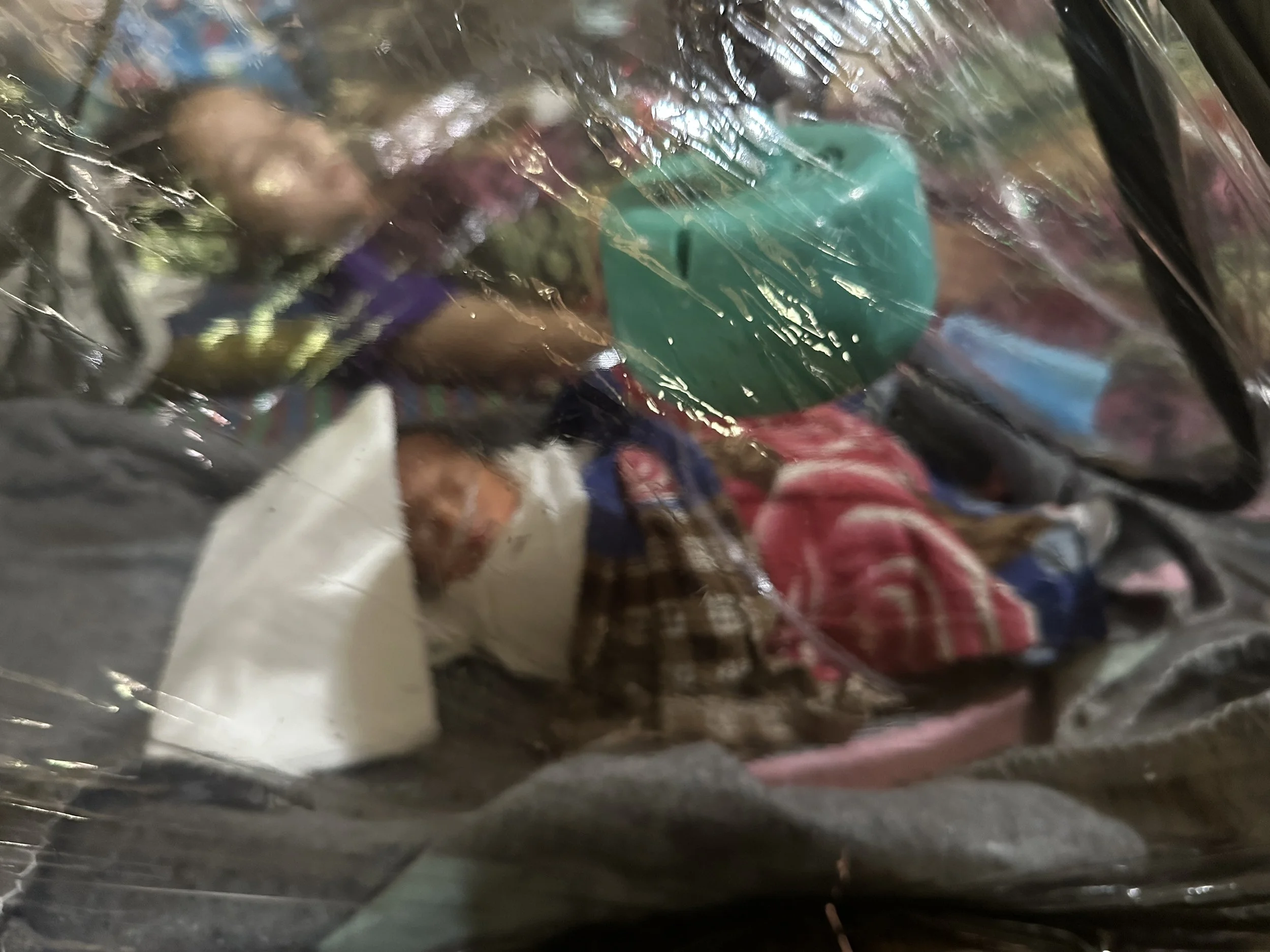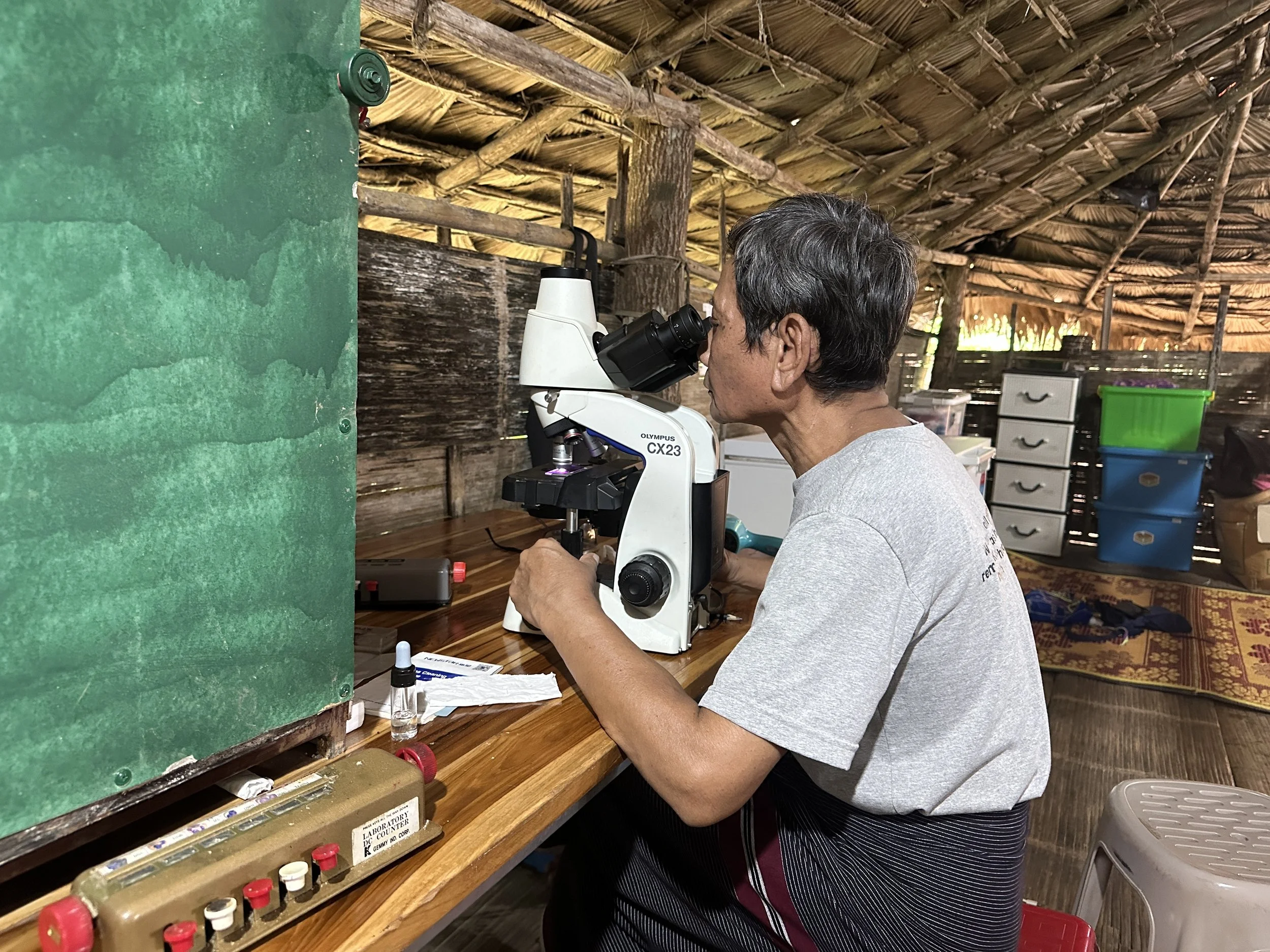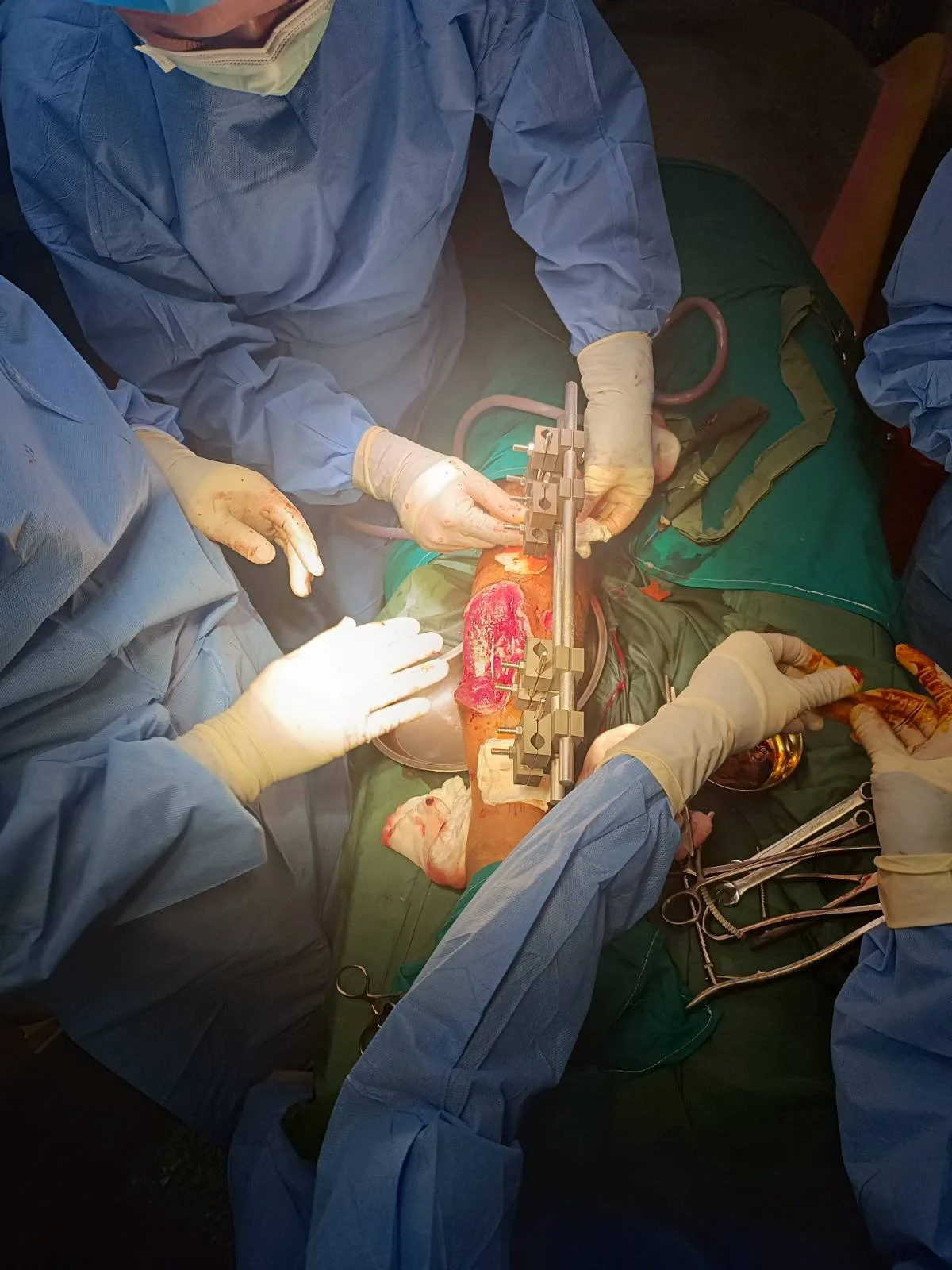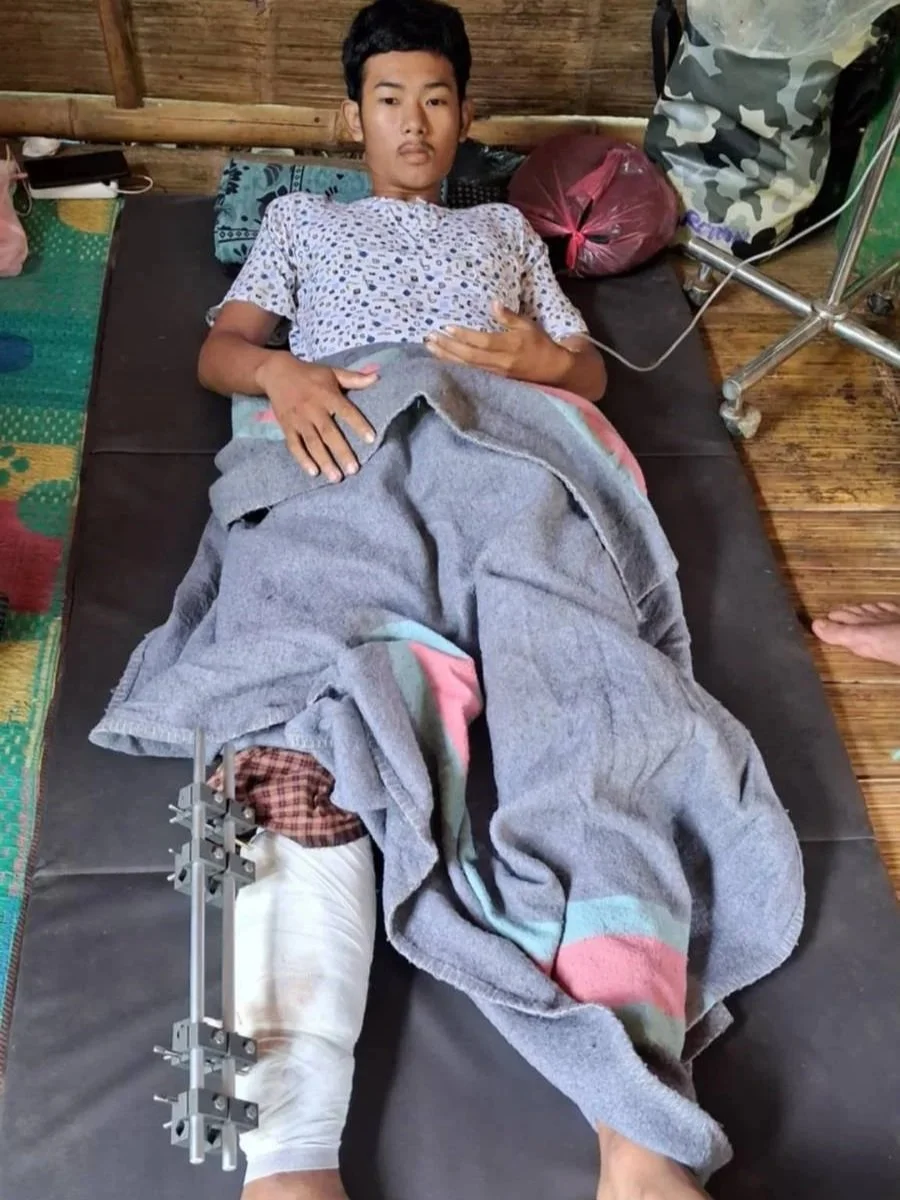From the Field
Medical Updates
"Come to me, all you who are weary and burdened, and I will give you rest."
MATTHEW 11:28 NIV
When It’s Not Enough
Dr. Jeanne Bramer is currently volunteering with Earth Mission with her husband and daughter in Chiang Mai, Thailand. She and her husband, Danny have worked alongside Earth Mission from the U.S. for the last 10 years and moved to Thailand a year ago. She is an OB/GYN physician in Kentucky where she practices in the summer.
Anyone in healthcare knows the joy and satisfaction of helping others to feel better. But they also know the sorrow and frustration of when it doesn’t work or if there’s nothing you can do. You take it personally. If only…
Usually it is a condition that has progressed rapidly or the patient waited too long to seek care. But for the students and physicians at Rain Tree Clinic, RTC it is often because of lack of resources and the remoteness that causes them to not be able to heal patients. In the U.S., I’m used to being able to consult lots of specialists and try multiple treatments before finally realizing that I can’t help them. And by the grace of God, it’s not a common experience that I have in OB.
At RTC, there are 5 physicians teaching the students and supervising all of the patient care. That means that every difficult case falls on one (and usually several) of them. They are well trained and often know what is needed, but unable to provide the level of care or transfer to a higher facility in time. That means they are often having to do what they can but without the outcome that they hoped for.
My thought process started from a recent case that led to a maternal mortality. It highlights so many parts of life in Burma that are different from everything I’ve ever known. She delivered her 13th baby at home with a “traditional” midwife (meaning no formal training). It was a difficult delivery that we don’t have a lot of details about. The baby was stillborn. She wasn’t feeling well and was sent to an outside clinic the next day. She was transferred to RTC after getting worse over several days but had to be carried by “bambulance” (bamboo with hammock) for 10 hours over jungle trails because of rainy season. Upon arrival she was immediately taken to surgery. Unfortunately, she did not survive.
It’s hard to know if the outcome would’ve been different in the U.S., but there definitely would’ve been many more doctors to share the burden with. And eventually those doctors would be able to go home and rest allowing a new group to take over. At RTC, that too is not possible. They rotate call and help one another out, but when those really sick patients come, they are all working to save them.
Death is inevitable, but as physicians we work hard to prevent it. The emotional toll is difficult. It’s part of our jobs, but that doesn’t make it easier. The PA students and physicians have lived the majority of their lives in a world of conflict. They know death more than they should, but it’s still hard every single time.
Thankfully, there is more than life or death; there is the promise of salvation for those who know Jesus. And that is what RTC exists for—to share the gospel with the Karen people by showing them the love of Jesus through healthcare.
Please join me in praying for the students and physicians at RTC as they face challenges each day and allow the Great Physician to give them wisdom and comfort them even on the hardest days.
Pray for Bway
Our friend and teammate, Bway (Communication Manager), has been sick with malaria for the past few weeks. She is in good hands with Dr. Zue treating her at Rain Tree Clinic. Please pray for quick healing and renewed strength.
With Bway’s case and others, here’s how our medical staff and PA students treat malaria in the remote jungles:
Check with a RDT (Rapid Diagnostic Test)
Perform a blood smear test, which involves using a microscope to confirm malaria parasites and which type.
Provide treatment depending on the type of malaria parasite you have. Malaria is treated with prescription drugs to kill the parasite. The types of drugs and the length of treatment will vary.
Bway, Communication Manager
Saw Mar Nay Aw Kel (Laboratory Director) analyzes a blood sample in the RTC laboratory.
Case Report
By Dr. Hsa, Medical Director
During the month of August, we performed our first external fixation procedure at RTC. The patient, a 20-year-old PDF soldier, sustained an injury from a 40 mm mortar resulting in an open tibial shaft fracture on July 24, 2025.
This was a carefully-selected case, as opportunities to perform external fixation are rare in our setting. Typically, most fracture cases are referred to Thailand, where orthopedic teams prefer that patients arrive without any prior surgical intervention or external fixation.
In this instance, however, the patient was under the care of the PDF (NUG) and had plans for further referral to an orthopedic surgeon in-country. This unique situation provided us with the opportunity to perform external fixation prior to his referral.
Rain Tree Clinic (RTC) Hospital & Campus
Between the junta’s airstrikes on hospitals or fear of traveling to cities for healthcare, we are seeing patients come to RTC who are sicker and from farther away. The furthest patients took more than 10 days to travel to our hospital in the rainy season—a two-day trip during the dry season when the roads are open. Why do they come to us? Because in their regions, there is no advanced clinical care or surgical capability. There is one advanced hospital in one of their areas, but many Karen people prefer to seek healthcare from Karen providers.
In August, the RTC Hospital saw 334 outpatients, (57 were children under 5 years old), admitted 39 patients, performed 41 surgeries, and delivered 7 babies.
Logistics
We are planning to resume supply logistics and transportation in September or October as rainy season comes to an end soon. Thanks to generous donors, we were able to purchase new motorcycles to add to RTC’s fleet to transport patients and supplies. Please pray for safety for our logistics team and for washed-out roads to be repaired quickly.
With impassable roads, our staff and volunteers had to carry a 16-year-old patient by “bambulance” to RTC. The patient had an open femur fracture from a mortar attack by the Myanmar army.
Engineering
The engineering team has been extremely busy. They’re cleaning up the aftermath of rainy season (cleaning solar panels, cleaning water resources, fixing leaking roofs, replacing water filters) while preparing for resumed transportation with maintenance on our fleet of trucks, motorbikes, and an excavator.
They continue to enhance campus infrastructure like adding water tanks for the student dorms, expanding medical storage, and installing more electricity lines to medical buildings. With electricity, we’re able to use an autoclave to sterilize instruments and packs so we’re always ready for surgery:
Preschool
Our staff are willing to risk their lives for the sake of others, but they shouldn’t have to risk their children's education. That's why we have a preschool set up for our RTC staff's kids. There are now 9 preschool students under 5 years old!
Mobile Karen Surgical Hospital (MKSH)
In August, the frontline team saw 74 outpatients, 13 inpatients, and treated 6 war related injuries due to landmine and mortar blasts. Two patients were referred to RTC. For 2 months now, it's been relatively quiet in the region, with only CHWs and medics needed at the mobile clinic site. Dr. Augustine and our surgical PAs remain on call for remote consultation. Continue praying for the fighting to stop and the war to end.
Join Our Team
We’re looking for a marketing manager to support communication channels between our Asia and U.S. teams. This position is based in Chiang Mai, Thailand. For more information, contact Lek, our HR Administrator, at lek@earthmissionasia.org.










